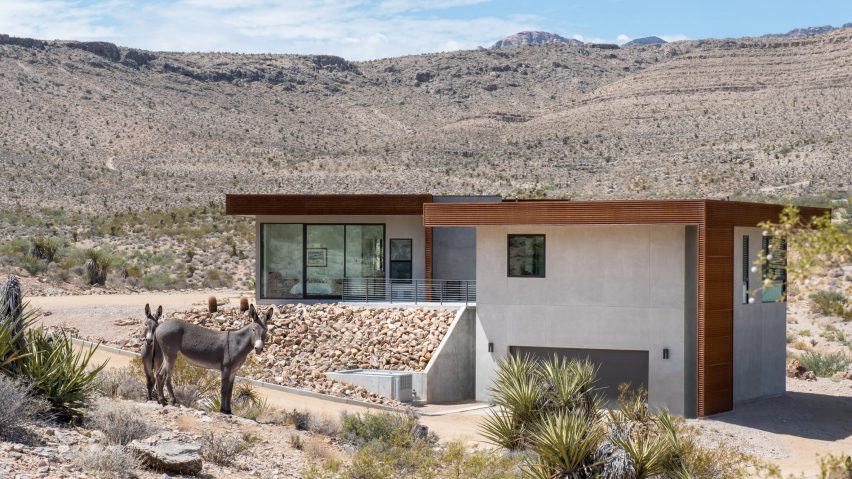
Hoogland Architecture designs Arroyo House for stark desert site in southern Nevada
American firm Hoogland Architecture has conceived a low-lying concrete residence wrapped in weathering steel, for an active couple who hope to remain in the desert home as they age.
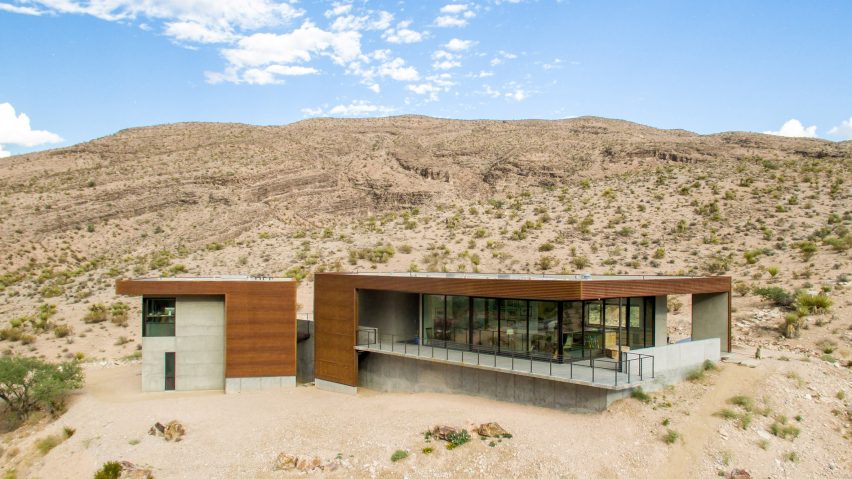
The Arroyo House is located in Blue Diamond, a hamlet just outside Las Vegas in the Mojave Desert. The small community is situated near an active gypsum mine, and also lies within close proximity of Red Rock Canyon – a conservation area that is popular with hikers and rock climbers.
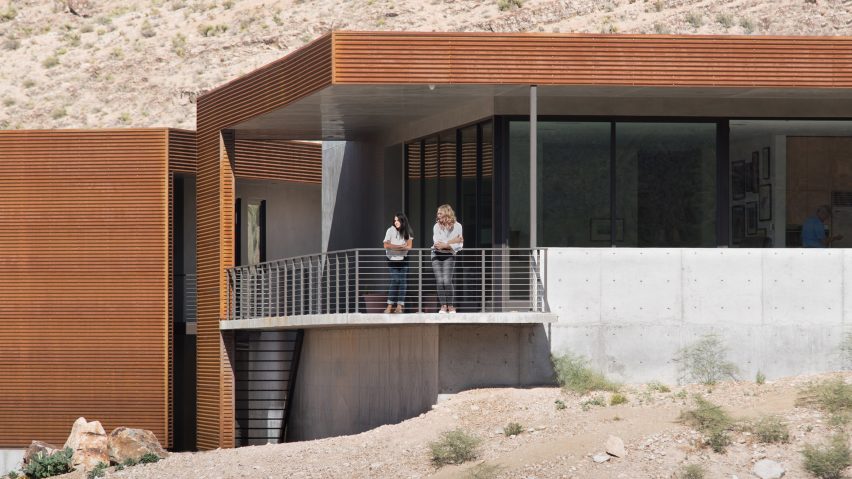
The home was envisioned as a "base camp" for an active couple who are nearing retirement.
"After recently relocating to the Las Vegas area, their love of all things outdoors convinced them to make their home in the tiny village of Blue Diamond," said local studio Hoogland Architecture in a project description.
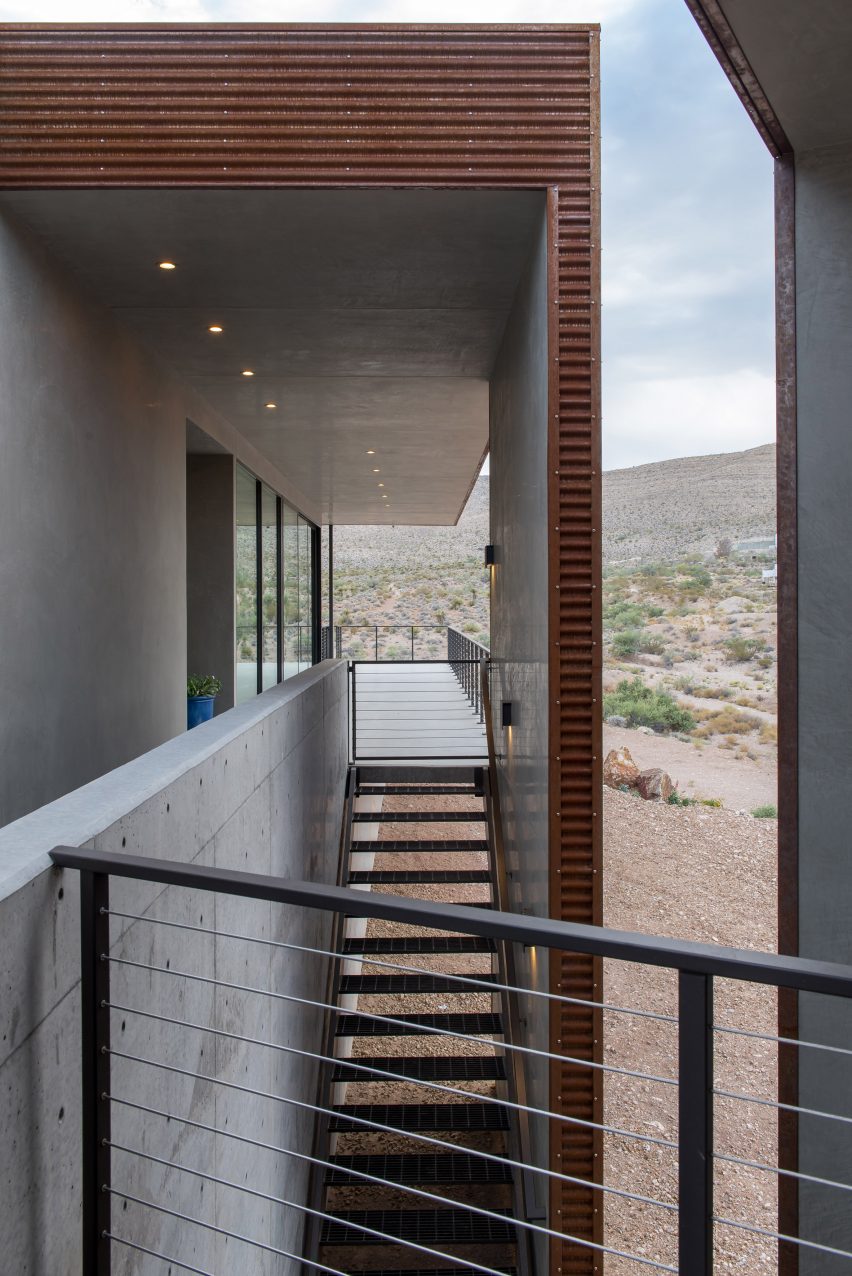
"While only minutes from Las Vegas, Blue Diamond is a half-mile-wide by half-mile-long hamlet, surrounded by some of the most iconic landscapes and sought-after rock outcroppings in the US."
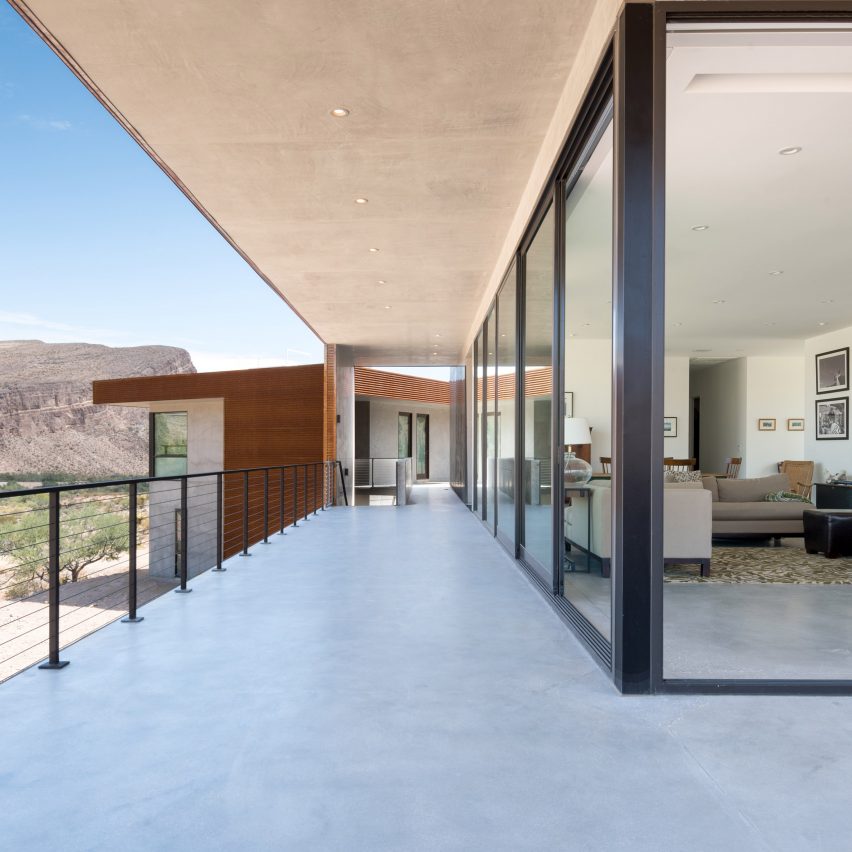
The 3,875-square-foot (360-square-metre) dwelling was built on a sloped site near a natural wash, called an arroyo. For the austere desert site, the architects conceived a low-lying residence that consists of two rectilinear volumes connected by a deck.
One volume is long and horizontal, and serves as the main dwelling. The other form, which rises two levels, is more compact. It contains a garage at ground level and guest accommodation up above.
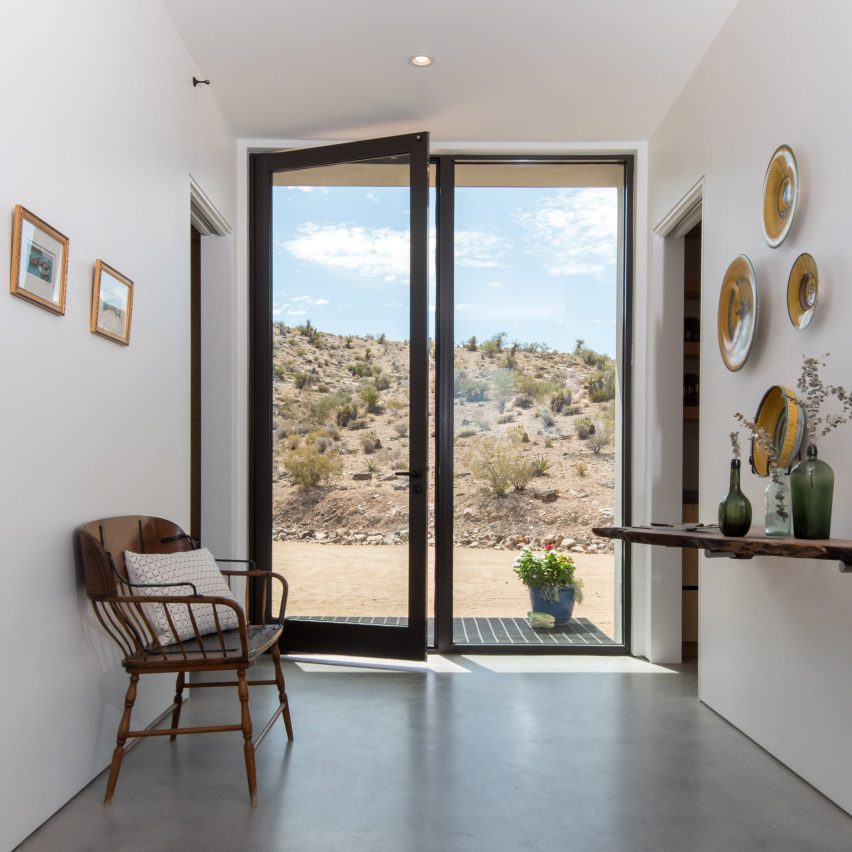
Exterior walls are made of concrete, weathering steel and vast stretches of glass. Deep roof overhangs protect the glazed walls from the intense desert sun and also shade patios that encircle the home.
The main portion of the dwelling contains a generous master suite and an open-plan area for cooking, dining, and lounging. Large windows and sliding glass doors usher in ample daylight while affording sweeping views of the arid landscape.
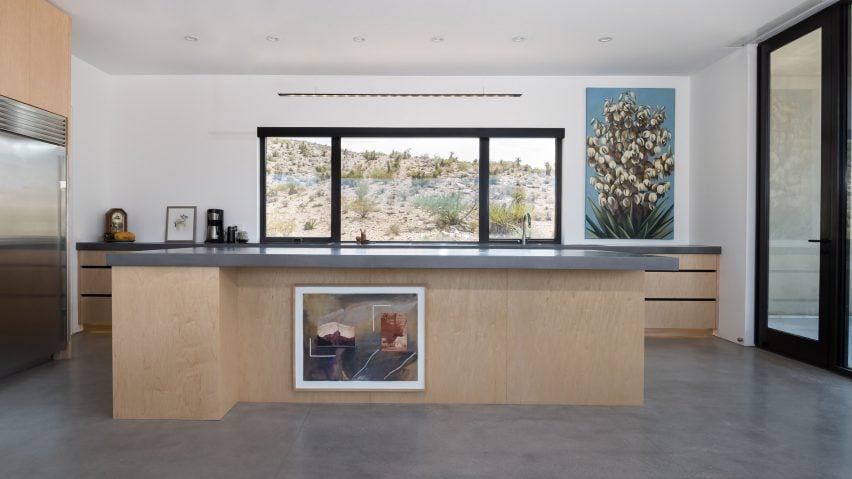
While the clients' decor is eclectic, the team used a restrained palette of colours and materials for interior finishes. Polished concrete floors are paired with bright white walls and ceilings. Light-hued wood cabinetry and stainless steel appliances define the kitchen. In the bathroom, stone tiles evoke the desert terrain that surrounds the home.
One of the primary concerns for the architects was to create a dwelling in which the clients could grow old. "It was important for the home to not only address their needs now, but also 10, 20 or 30 years into the future," the team said.
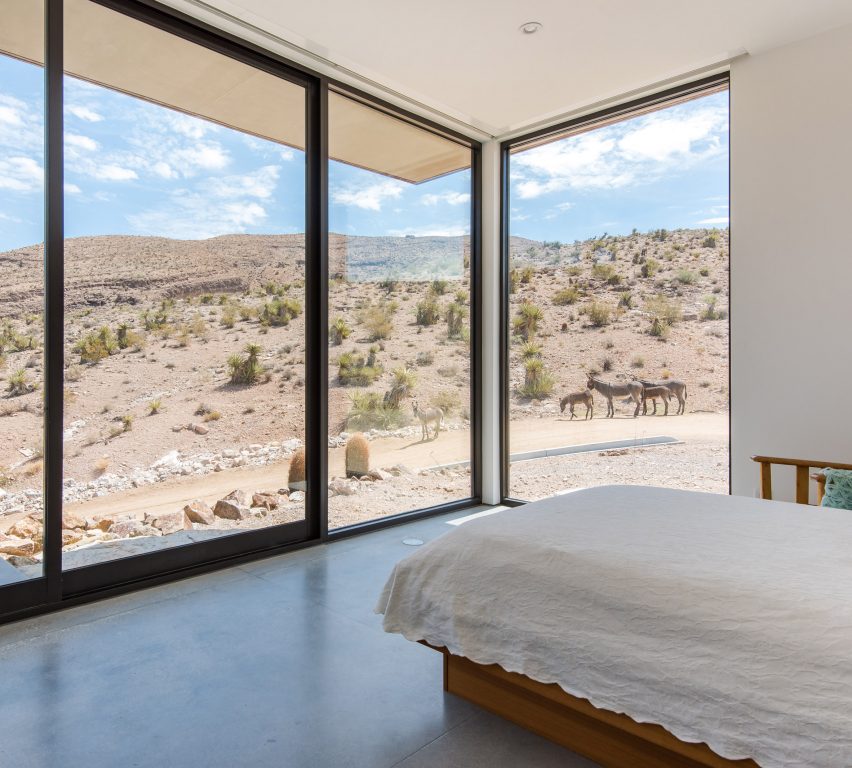
In response, the team placed all living spaces on the same level, with the exception of the garage. A driveway connects the upper level to the garage, enabling the clients to drop off their groceries before parking their car down below.
The team also incorporated features such as grab bars and a roll-in shower in the bathroom. Plus, the home's wraparound deck connects all of the programmr areas, helping "address the realities of ageing in place".
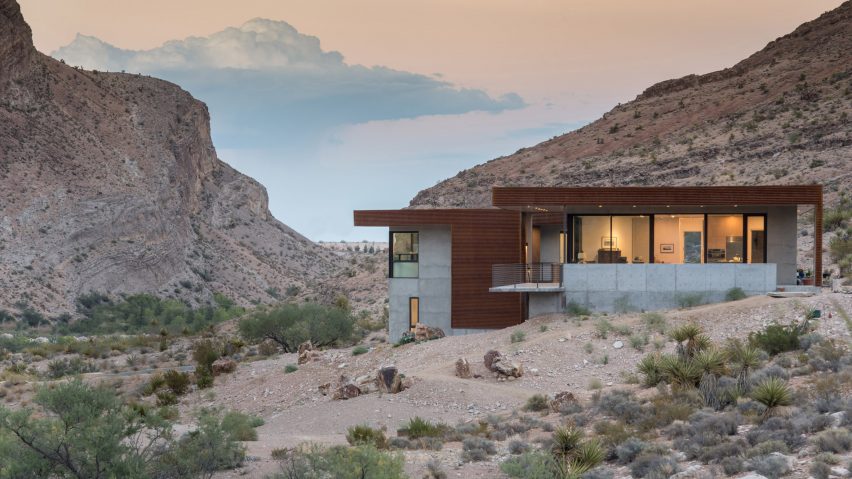
Sustainability was also considered during the project. Eco-friendly features include low-flow plumbing fixtures, non-toxic paint, and an in-slab radiant system for heating and cooling.
Greywater is used for landscape irrigation, and black water is treated onsite through a septic system. The couple also intends to install a photovoltaic array, with hopes of generating more energy than the home consumes.
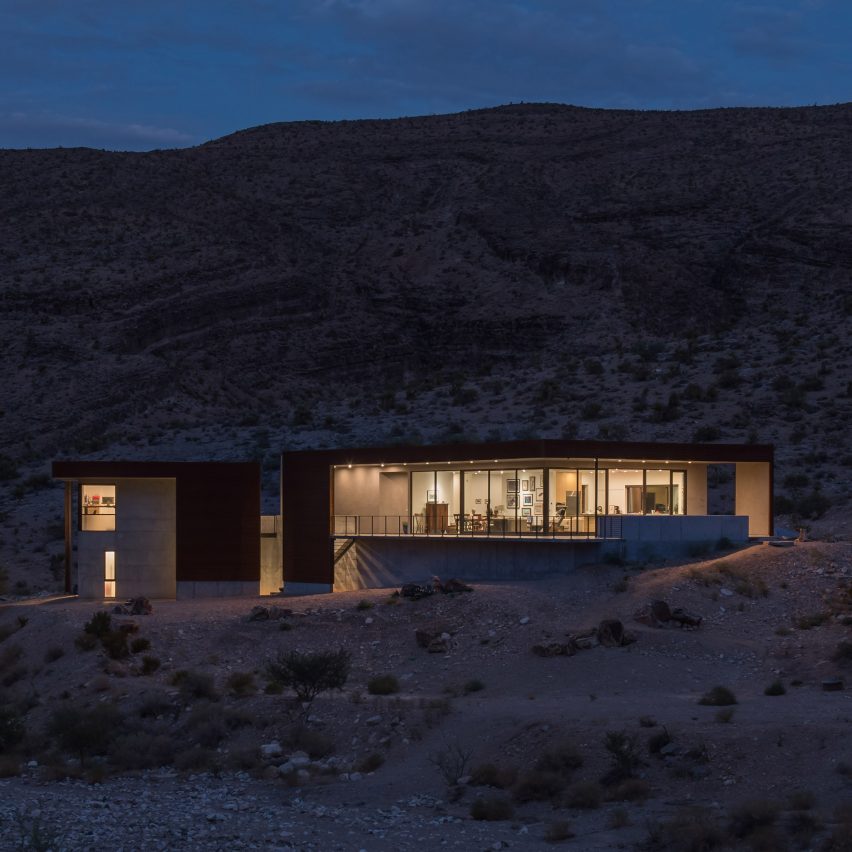
Known for its vast desert terrain, Nevada offers a dramatic backdrop for architecture. Other houses in the state include the highly sculptural Shapeshifter House by OPA, which features angled zinc-clad walls and enjoys views of the Sierra Mountains.
Photography is by Stephen Morgan.